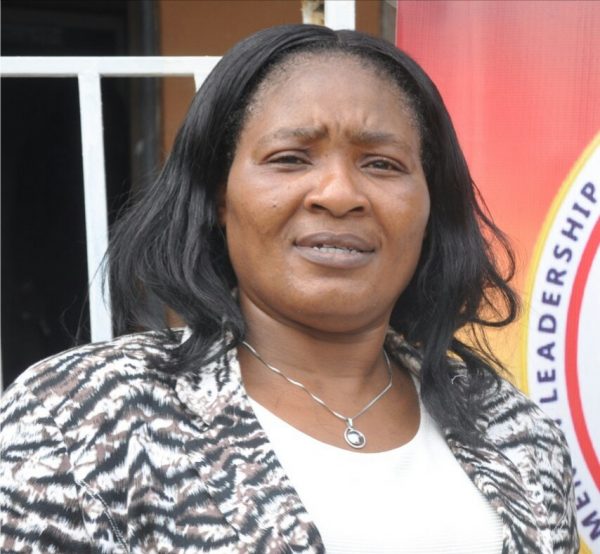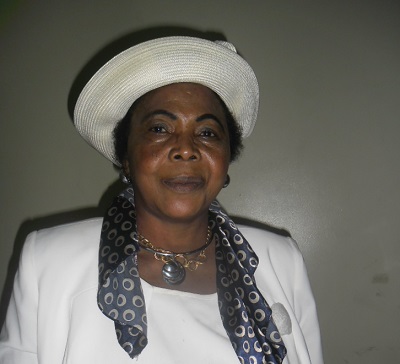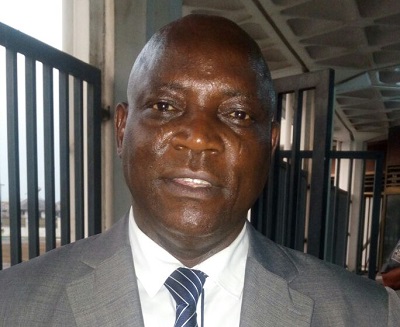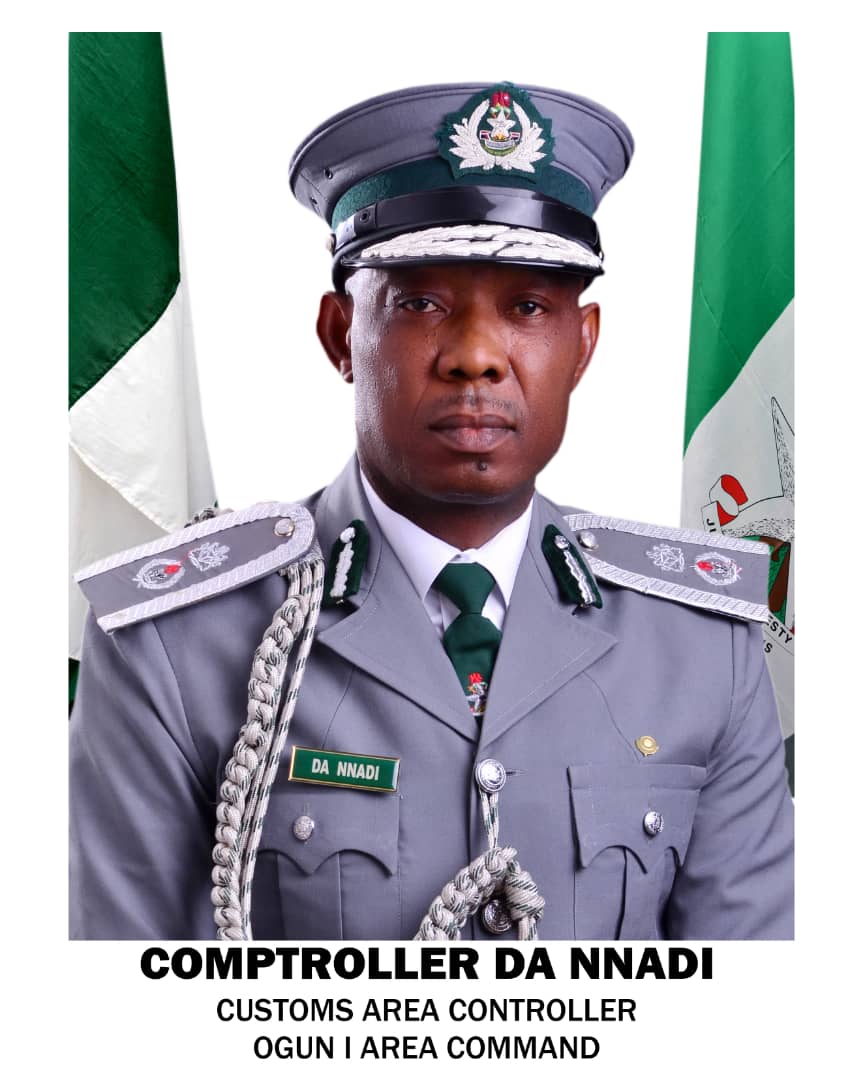How CBN’s Forex Policies Inhibit Trade – Aniebonam
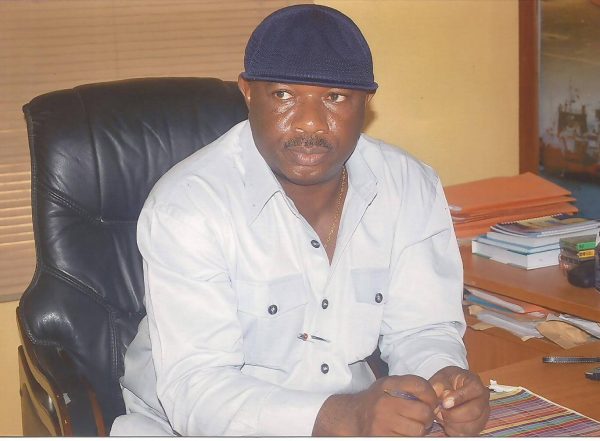
By Kenneth Jukpor
Dr. Boniface Aniebonam is the Founder of the National Association of Government Approved Freight Forwarders (NAGAFF). In this interview, he bares his mind on pertinent issues relating to freight forwarding practice in the country. Aniebonam identified some shortcomings of the Nigeria Customs Service (NCS) and provided an appraisal of the Lagos port access roads. Enjoy it!
Eight months has passed since the inauguration of the new CRFFN Governing Council and a new Registrar has also been appointed. How would you rate the development at CRFFN since that time?
We need to give CRFFN time to settle down. The board and the new leadership met an empty treasury. In the past, the affairs of CRFFN were seen to be solely administered by the former Registrar, Mr. Mike Jukwe. CRFFN was in shambles and right now they need to pick the pieces back together. I think they need time to settle down before we can move to level of assessment.
CRFFN is primarily saddled with the task of developing capacity because this is one major area that the government wants to address. When you know what you are doing and you are properly positioned to do it, you will do it perfectly. The problem of the port has to do with compliance but a lot of people don’t understand it that way. Many of them will tell you that this is how they have been doing it and they cannot change it but this is not the right way to go.
I’m aware that the Governing Council members of CRFFN are overseas now for a one-week course in Dubai. You can see now that they are trying to position themselves. Even when you are recruited in Customs, Navy, Police and the others, you go through a refresher course. So, this means everyone needs to be trained.
Several crucial maritime sector bills were not passed last under the last administration. The CRFFN Act amendment also failed to scale through. What are your expectations from the 9th National Assembly?
It is CRFFN that is my concern and that bill is before the National Assembly. I thank God that the bill did not scale through because we were not very comfortable with certain things. We are in court for interpretation as to whether CRFFN is an agency of the government or not. At the Federal High Court, it was pronounced that CRFFN is an agency of the government. The court cannot say that CRFFN is an agency of the government when members of the Governing Council are elected members from the freight forwarding associations. If you say that CRFFN is an agency of the government, why doesn’t the government appoint all the council members? Government only appoints the representation from the six geo-political zones.
Yes, government has hand in virtually everything but CRFFN is an autonomous agency. The basis of government there is for them to know what is going on there but it is entirely private driven. CRFFN in its position at the National Assembly during the public hearing was trying to get what they couldn’t get in court; they are coming through the back door. Right now, we are in Appeal Court on the subject matter and they are pushing the National Assembly to state that CRFFN is an agency of the government. Something is wrong somewhere. If CRFFN is an agency of the government, why are you bringing this position before the National Assembly for ratification? Now they want to ratify a matter that is still in the court awaiting hearing at the Appellate Court, it just doesn’t make sense.
The expectation is still there and the good thing is that the 9th Assembly cannot just go ahead and endorse it. They will have to call a public hearing again, meanwhile, our appeal has been resuscitated.
At a recent meeting, you talked about NAGAFF going in partnership with Customs and an arrangement where senior officers could be sent to train NAGAFF members. What is the latest development on that?
The fault is from our side at the moment because we haven’t written any proposal to that effect. When you are dealing with government, you have to put it down. The NAGAFF President is in Dubai at the moment and we are conducting elections on the board for now. So, most of the officers are a bit busy but when they come back, we will do something about it.
The Director of Enforcement, National Drug Law Enforcement Agency (NDLEA), also came here on behalf of the Chairman of the NDLEA. The Chairman had accepted personally for her to come here to educate freight forwarders on the issue of drug. The Customs is always there to do the technical aspect.
This aspect of training is where the Practitioners Operating Fees (POF) becomes very critical because that is the aspect that will assist the various associations to enhance training programs for members of the freight forwarding family. We are keeping an eye to see what come out of it.
Recently, Customs said they blocked about 300 licenses and a senior officer informed us that 167 out of the 300 are NAGAFF members. What would you say about this?
There is no means to identify the blocked licenses belong to NAGAFF. That’s just an untrue allegation. NAGAFF do not own license. That officer that provided that information has no facts to show that those licenses belong to NAGAFF members. However, Customs have their responsibility to block licenses of people who may have committed a revenue crime or any infringement on Custom laws.
The laws are very clear. It is the authority of the Customs to grant licenses. It is their personal property which has been given to an individual to carry out businesses and if you do anything contrary to the laws, they will withdraw the property.
There are assertions that over 15,000 cargos litter Lagos ports. The situation led the Comptroller-General of Customs, Col. Hammed Ali (Rtd) to visit the Ikorodu terminal last week. The NAGAFF Chairman at Ikorodu also claims that NPA has not been cooperating with the Customs to remove the overtime cargoes. What’s your opinion on this?
Sometimes we make certain statements and it becomes very unfair to an individual or an organization. NPA does not have the responsibility to transfer containers to the Ikorodu terminal. NPA is a technical supervisor and that responsibility rests on the terminal operators.
If I want to go further on this, I would say the onus is on the Customs. If a terminal operator doesn’t provide the equipment for Customs to endorse the evacuation of the cargoes with escort, it is an infringement on Customs regulation. It is an obstruction to the lawful duty of Customs and the penalty is one-year imprisonment with no option of fine. At the level, I expect the Customs to induct the terminal operators to find out why the containers have not been moved. This issue is explained in Section 19 of the Customs law. However, we have seen that in this country it is one thing to have laws but a different thing to implement the law.
When the Zonal Coordinator ‘Zone A’ ACG Kaycee Ekekezie visited NAGAFF, I raised this issue of implementing Customs laws. Customs have been too lenient and that is why some operators are behaving unnecessarily. Customs is empowered in its law to be very punitive. The port is Customs port and the Section 13 of the Customs law stipulates that NPA (whose responsibility has been delegated to the terminal operators after the port concession) should provide an enabling operative environment. Today, it is the responsibility of the terminal operators to provide this environment as well as the necessary equipment to make the Customs job efficient. NPA is a technical supervisor in the current landlord model at the ports.
I would rather blame Customs and ask why Customs haven’t effected the arrest of all those who haven’t moved the containers to the appropriate place. Customs should endeavour to apply the laws because it is through the application of the laws that the legislature painstakingly provided that we can have a good society. It is the law that guarantees freedom of movement, association, and ensures there is order in the society.
Some top Customs officers have acknowledged that they have been tolerant in order not to cripple the nation’s economy. Could it be that the Customs resolve to be more lenient is as a result of genuine efforts to facilitate trade?
People get the concept of trade facilitation wrongly. Trade facilitation is about simplification of processes and procedures. It talks about people doing the right thing. Nobody facilitates illegitimate trade. Trade facilitation is about doing the right thing and it’s in the law. Ease of doing business is another name for trade facilitation and the fact that the government came up with that concept means that the government has observed that things are really not working well. The question is why are things not working well when we have good laws and policies? The problem is that we have not properly applied these laws to get the desired results.
So, ease of doing business doesn’t give room for you to do the wrong thing and getting away with it. Ease of doing business means that the scanners should be working. All required tools and equipments should be working optimally when we talk about ease of doing business. The port access roads should be in order. Nobody can talk about ease of doing business at our ports today with the road network we have at the moment.
On the state of the port access roads how would you rate the Presidential taskforce set up by the Vice President, Prof. Yemi Osinbajo to ease the flow of traffic? They have been given another two weeks extension to address the problem.
They will continue to give them time extension because these are human element issues that should have been nipped in the bud several years ago. Fifteen years ago, NAGAFF wrote a special report on the need to develop a truck terminal to address the unregulated influx trucks at the ports. At that time the port was going into a second phase of development. Today, we have the likes of Dangote, Flour Mills and other big companies at the ports but no way to access the ports. Truckers are very critical to port operations. You can’t handle them stiffly because it would be calamitous.
The government needs to create a superstructure in terms of acquiring lands and creating truck terminals. They could get private individuals to manage the facility. These are simple things that could be done to ensure the nation’s port sector never gets into chaos.
Look at the roads, the injection between Lagos and Apapa, that bridge is about to collapse, if that happens what next? It is more worrisome that those in authority pass through the road daily and they also see the state of the bridge. Is it President Mohammadu Buhari that should be held responsible for this, when his powers have been delegated to several Ministries and heads of parastatals? Why do we derive joy by sitting in the comfort of our homes to blame President Buhari? What have we done as individuals to make things better?
I think we should declare state of emergency at our ports. The port infrastructure is in shambles and there is corruption at all levels at the ports. The situation doesn’t give hope in any way but there is hope, especially now that we are talking about it. We will also help talking and anticipating that one day it will be well.
A new presidential administration has just begun, although President Mohammadu Buhari returns as President. As a veteran freight forwarder, what aspirations or goals do you have for this administration?
There is really nothing new I would say that hasn’t been said before. Every detail concerning effective port administration and operations is already with the government. Industry experts have developed the blueprints and handed over to them but the problem has been that of implementation. All that is required in this industry is the political will to get things done efficiently and timely.
The problem of the port access roads have been on for over two years. Look at Tin Can Island Port to Mile-2. How do we explain the situation there? By now, what I expected us to be seeing some level of expansion of the road network. The situation is also the same at Apapa port; the roads should be expanded to carter for the cargo traffic. We should have at least six lanes on both sides and the government has the capacity to do this. The country is losing so much money because of the road network.
If the maritime sector is harnessed optimally the country could have a sector that can contribute significantly like the oil sector. There would be enormous employment opportunities and increase in revenue generation for the government.
Nevertheless, cargoes coming into Nigeria are on Cost Insurance and Freight (CIF) while those leaving are on Free On Board (FOB) basis, so the country is losing all round. We lose immensely because we don’t have ocean-going vessels to benefit in the enormous funds that could have come in as freight.
Recently, the Central Bank of Nigeria (CBN) increased the import duty rate. What’s your take on this sir?
It is unfortunate that CBN’s actions never allow international traders to plan. How can one wake up overnight and change the rate of Customs duty? What happens to someone who has gone to a bank to borrow money and made his calculations on a particular rate before the sudden increase? Where would he get the money to pay the additional cost? These are some of the reasons goods are lying down in the ports. The consignments abandoned at Ikorodu are results of these kind of decisions that aren’t in line with democracy and the rule of law.
For instance, look at the 41 items that were denied access to forex by the CBN. The import procedure is very clear. It states that every import into the country must require ‘Form M’. If you don’t give forex for these trade goods, what about Nigerians that want to use their monies to bring in these goods? Isn’t it an avenue for them to bring money into the country? So, we need to open ‘Form M’. However, CBN don’t register ‘Form M’ for goods in this category that shouldn’t enjoy forex.
There are categories of import into Nigeria; we have Letters of Credit, Not Valid for Forex and then Bill for Collection. There is a reason government provided those opportunities. If you go through the bank and earn your forex through the bank, it will be Letters of Credit. If you have money outside and you intend to bring it into the country, you use the Bill for Collection but if it is Not Valid for Forex, it means it is your money.
CBN has blocked them all and this necessitated the issue of third-party. It is also one of the major reasons why we have a high number of uncleared items. These goods wouldn’t enjoy Form M yet they keep coming. Technically, those goods restricted from enjoying forex are banned, yet they aren’t officially banned. We keep on doing things that hurt the economy, yet, we say we want to grow the economy.



